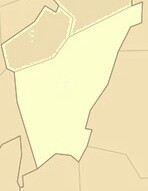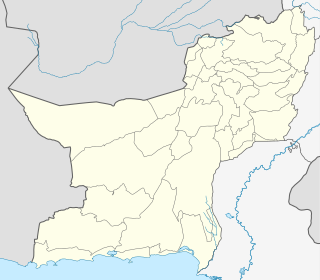Related Research Articles

Terrorism in India, according to the Home Ministry, poses a significant threat to the people of India. Compared to other countries, India faces a wide range of terror groups. Terrorism found in India includes Islamic terrorism, separatist terrorism, and left wing terrorism India is one of the countries most impacted by terrorism.
Events from the year 2008 in Pakistan.
In 2008, the country saw 40 terrorist attacks, which caused 154 fatalities and 256 injuries.

The 2011 Afghanistan Ashura bombings were a pair of bombings in the Afghan capital of Kabul and Mazar-e-Sharif. The Kabul suicide bombing took place at around noon local time, on the day when Muslims commemorate Ashura, an annual holy day throughout the Muslim world particularly by the Shi'a Muslims.
Events in the year 2013 in Pakistan.
This is a list of terrorist incidents in Pakistan in 2013. Some of the incidents are sectarian in nature and the TTP is responsible for a majority of them.
On 10 January 2013, several bombings took place in the southwestern Pakistani city of Quetta, the capital of Balochistan, killing a total of 130 people and injuring at least 270. The Quetta bombings led to protests by the city's Shia Muslim Hazara community; Prime Minister of Pakistan Raja Pervez Ashraf responded by dismissing the Chief Minister of Balochistan, Aslam Raisani, and replacing him with Zulfikar Ali Magsi. On the same day, a bomb exploded in Swat District, Khyber Pakhtunkhwa, killing 22 people and injuring 60 others.
On 16 February 2013, at least 91 people were killed and 190 injured after a bomb hidden in a water tank exploded at a market in Hazara Town on the outskirts of Quetta, the capital city of Balochistan, Pakistan. Most of the victims were members of the predominantly Shia Twelver ethnic Hazara community, and authorities expected the death toll to rise due to the large number of serious injuries. The Lashkar-e-Jhangvi group claimed responsibility for the blast, the second major attack against the Shia Hazaras in a month.

On 15 June 2013, a series of bombings and a subsequent siege resulted in the deaths of 26 people and injuries to dozens more. On the same day, separatist militants attacked and demolished the historic Quaid-e-Azam Residency in Ziarat.
On 6 July 2013, a time-device bomb blast occurred in the food street of the Old Anarkali district, in the eastern city of Lahore, Pakistan. The blast killed five people and injured dozens of others.
Qissa Khwani Bazaar bombing took place in the Qissa Khwani Bazaar market in Peshawar, Pakistan on 29 September 2013 killing at least 41 people and another 100 were injured.

On 10 July 2018, a suicide bombing occurred at the Awami National Party's workers rally in Yaka Toot area of Peshawar, Khyber Pakhtunkhwa, Pakistan. Haroon Bilour, ANP's candidate for PK-78 and prime target of the attack, was killed as a result of the bombing. The attack left 22 people dead and wounded 75 others. Tehreek-i-Taliban Pakistan claimed responsibility for the attack.

On 13 July 2018, ahead of Pakistan's general election, two bombings took place at election rallies in Bannu and Mastung.

On 22 July 2018, 3 days before general elections, a suicide bomber blew himself near the vehicle of former KPK provincial minister of Agriculture Ikramullah Khan Gandapur in Kulachi, Dera Ismail Khan District, Pakistan. The prime target of attack, Gandapur was brought to Dera Ismail Khan in critical condition where he succumbed to his wounds. Apart from Gandapur, his driver and one of his guards was also killed and three more people were injured. Tehrik-i-Taliban Pakistan (TTP) claimed responsibility for the assault describing Gandapur's killing of their colleague militants as the motive. The attack was widely condemned across Pakistan.
On the election day, there were series of violent attacks that occurred in the four provinces of Pakistan. The first attack occurred early in the morning in Larkana on Pakistan Peoples Party camp in which at least three people were injured in a grenade attack. The second incident occurred in Swabi District when a gun fight broke out between Pakistan Tehreek-e-Insaf (PTI) and Awami National Party (ANP) agents in which the PTI agent was shot dead. Later in the day, two attacks occurred in the Balochistan province. The first was in the capital Quetta, in which 31 people were killed and several more were injured. Then two people were injured in Nasirabad District. In Sindh, there were several violent clashes between members of Pakistan Peoples Party and Grand Democratic Alliance leaving many severely injured.

On 25 July 2018, during polling for the 2018 Pakistani general election, a bomb blast outside a polling station in Quetta's Eastern Bypass area resulted in 31 people being killed and over 35 injured. Islamic State of Iraq and the Levant claimed responsibility for the attack, according to the group’s Amaq News Agency.
On 23 November 2018, at least 33 people were killed and 56 others were injured in a suicide bombing in Kalaya, Orakzai District, Khyber Pakhtunkhwa, Pakistan.
References
- ↑ "Bomb in Pakistan kills 2 on election day". timesfreepress.com. Retrieved 2013-05-11.
| | This Pakistan-related article is a stub. You can help Wikipedia by expanding it. |